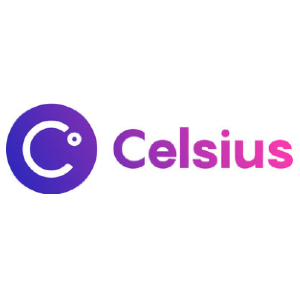Celsius uses Chainlink infrastructure to bridge CeFi and DeFi

CelsiusX, the DeFi engineering branch of Celsius, aims to bridge the gap between CeFi and DeFi seamlessly via suitable infrastructure. One of their initiatives is creating a wrapped token platform to unlock cross-chain liquidity between what otherwise would be isolated networks.
The challenge of building a cross-chain wrapped token platform
Building a token platform of this type comes with the following issues:
- Prevent the creation of unbacked tokens
- Secure the minting, burning, and redeeming of wrapped tokens
- Back audits by cryptographic truth
- Replace traditional audits with automated
- Allow users to verify wrapped token collateralization
With the inherent limitations to connectivity between different blockchains, making sure that wrapped tokens remain sufficiently collateralized was challenging. What’s more, the use of manual audits and centralized mediators introduces risk of centralization and efficiency bottlenecks.
Chainlink PoR as a solution
Celsius integrated Chainlink Proof of Reserve (PoR) to take advantage of automated, transparent, real-time on-chain audits instead of lengthy, opaque ones. It does this by using a decentralized network of nodes to prevent a single failure point.
PoR operates autonomously, increasing system resilience. With this integration, Celsius could secure the minting, burning, and redemption of its wrapped cross-chain tokens.
Alex Mashinsky, Founder and CEO of Celsius Network commented:
As a key infrastructure layer of the Web3 ecosystem, Chainlink is the right solution to integrate for building cross-chain bridges.
How to deposit wrapped ADA on Polygon
To start minting, ADA tokens are deposited to Celsius’ staking wallet on Cardano. Then, a Chainlink PoR data feed on Ethereum verifies the balance and mints cxADA tokens on Ethereum corresponding to the number of tokens on Cardano.
Then, these are deposited into a secure Enzyme vault system on Ethereum.
Token balance on Ethereum verified
Chainlink PoR smart contracts proceed to verify the vault’s token balances on Ethereum. To achieve 1:1 collateralization, Chainlink PoR mints a corresponding amount of cxADA tokens on Polygon.
It verifies token balances and burns cxADA tokens when the vault becomes undercollateralized when users wish to redeem their cxADA tokens for ADA on Cardano.
Celsius can use PoR as a circuit breaker
Celsius can use PoR to help ensure that minting of wrapped tokens only occurs when the vault has enough reserves. This adds an extra level of trust-minimization to the system.
The post Celsius uses Chainlink infrastructure to bridge CeFi and DeFi appeared first on Coin Journal.

